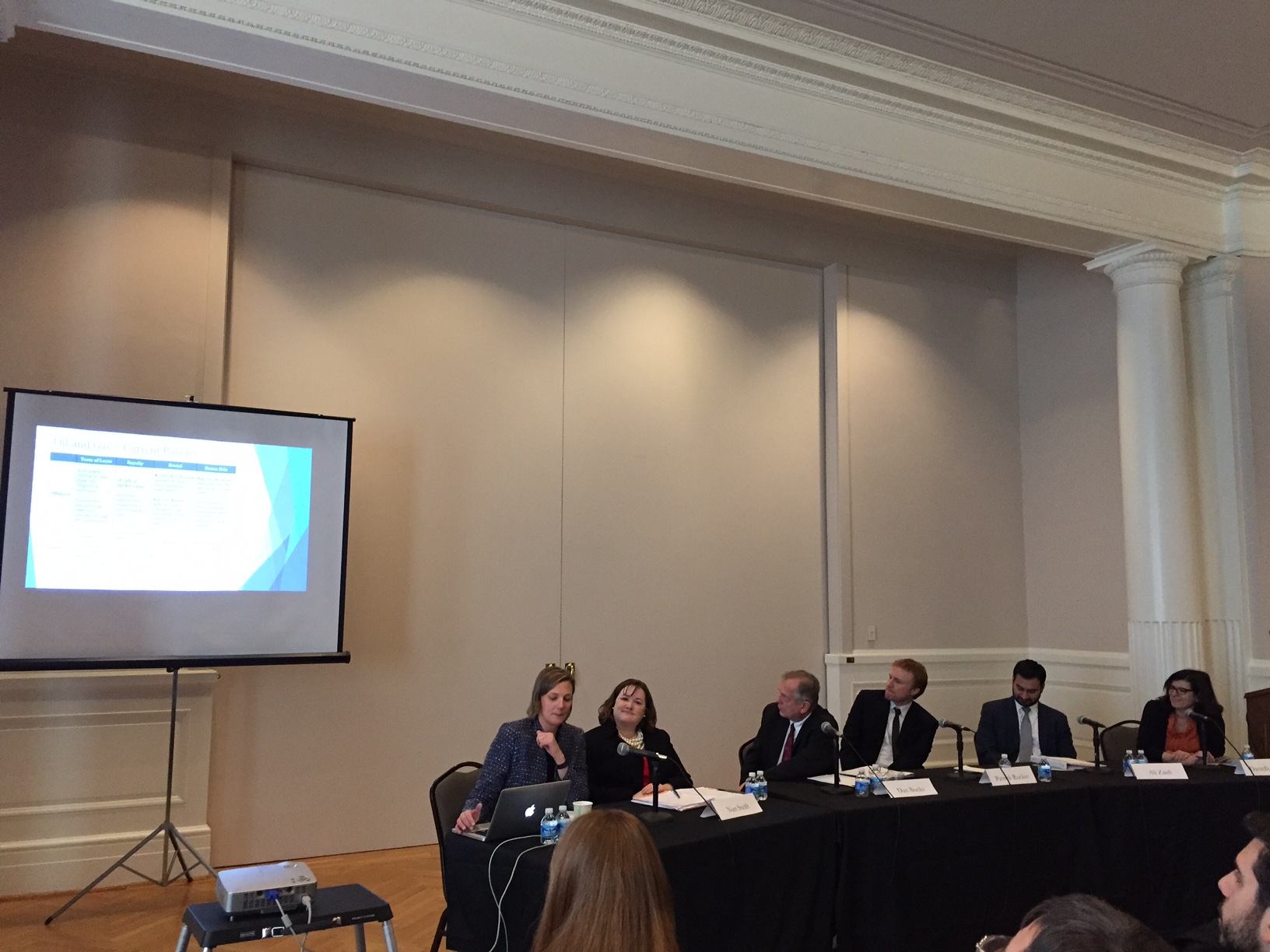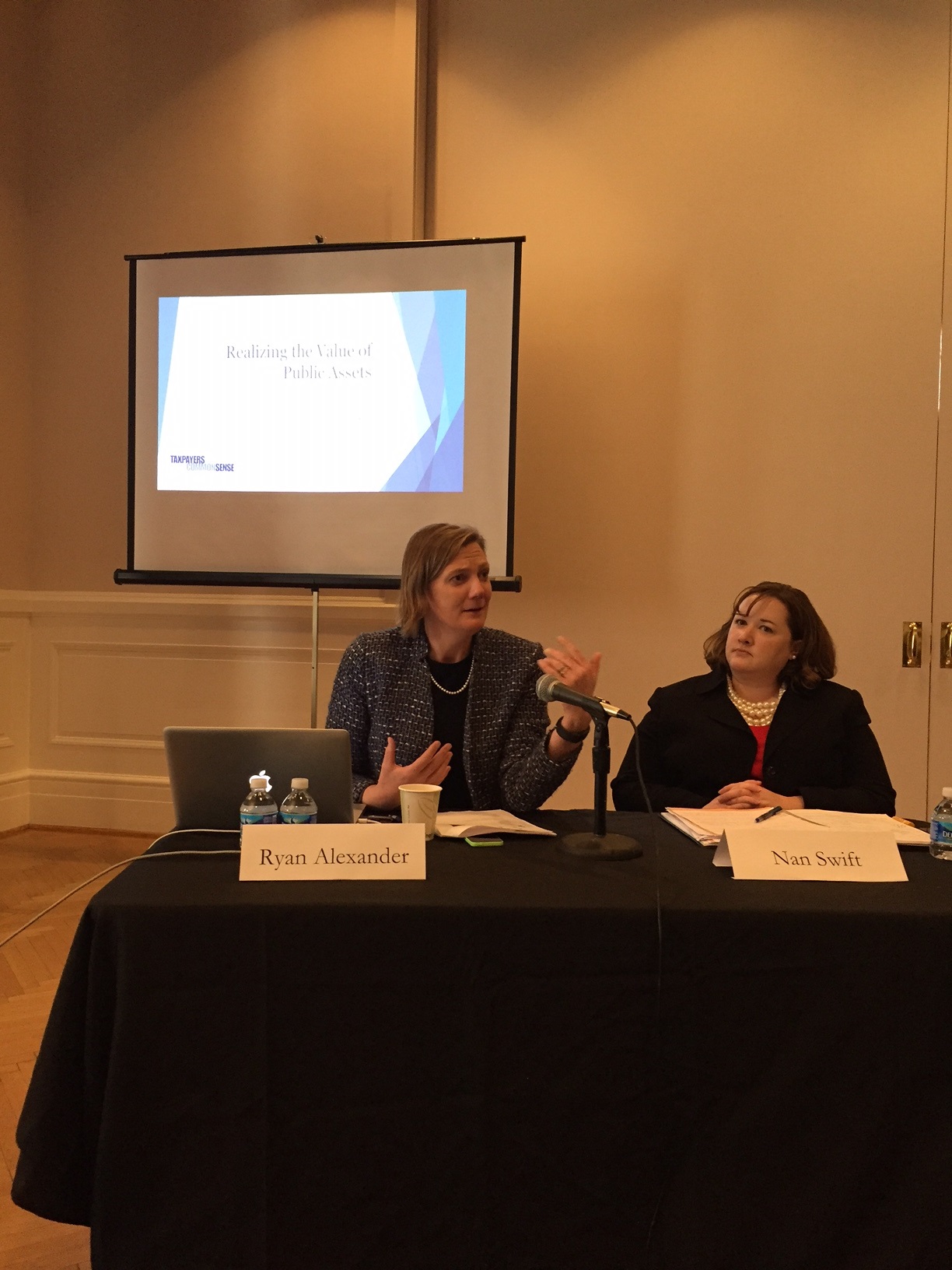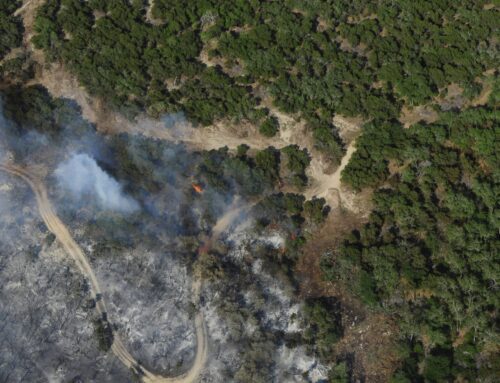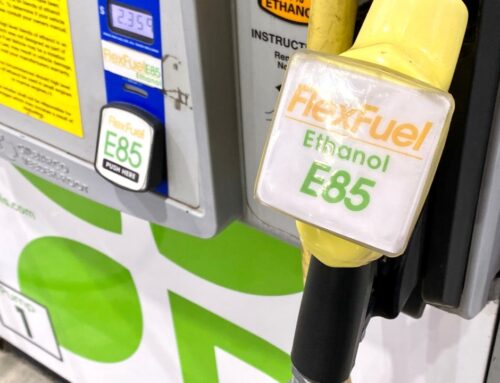On Thursday, January 28th, TCS cohosted a panel with Project on Government Oversight (POGO) on realizing a fair value for public assets on federal lands. Panelists included Ryan Alexander, President of Taxpayers for Common Sense, Danielle Brian, Executive Director of Project On Government Oversight, Dan Bucks, Former Director of Revenue for the State of Montana, Patrick Rucker, Energy Policy Reporter at Reuters, Nan Swift, Federal Affairs Manager at National Taxpayers Union and Ali Zaidi, Associate Director for Natural Resources, Energy, and Science Programs for the Office of Management and Budget (OMB).
The discussion focused on the revenue taxpayers receive through royalties, bonus bids, and rental fees for public resources developed on federal lands, such as oil and gas, coal, timber, hardrock 
Panelists also discussed hardrock minerals such as gold, copper and zinc. The 1872 General Mining Law still governs the mining of hardrock minerals on federal lands and designates no royalty requirement for its removal. Mr. Zaidi estimated taxpayers lose $160 million per year in unpaid royalties on these minerals.
The panelists agreed that lack of transparency is a key issue in developing resources on federal land and waters. As noted by Ms. Alexander, “whatever your view is, you can be helped by transparency. If you believe the main point of federal lands is to help the businesses that develop resources on them to profit, you would benefit from transparency. If you believe the purpose of federal lands is to conduct significant conservation, you, too, would benefit from transparency. Who doesn’t? The companies that have learned to game the system the best.”
Ms. Swift agreed that transparency is key to ensuring fair return to taxpayers, emphasizing the importance of the free market and accurate pricing of resources, while Mr. Zaidi emphasized modernizing the government by providing more information online to increase transparency.

During the question-and-answer session, a member of the audience asked what impact raising royalties on production of resources like oil and gas would have on production levels. Ms. Alexander cited studies that have shown change in production would be insignificant, explaining that “the worldwide market drives whether you will make money taking resources out of the ground, not royalties.”
The panel was also asked how the average taxpayer sees the benefit of fair return for these resources. Ms. Swift explained that when taxpayers receive fair return, they get to pay lower taxes, and different returns from different natural resources programs go to funding pots that can benefit all taxpayers.
When asked by an audience member how taxpayers can grasp the abstract concept of receiving fair return, Ms. Alexander responded, “the idea that energy companies get away without paying taxpayers a fair return is easy for the public to understand.”
To learn more about the fair return for various federal energy and natural resources programs, download TCS' Powerpoint slides from the panel.










